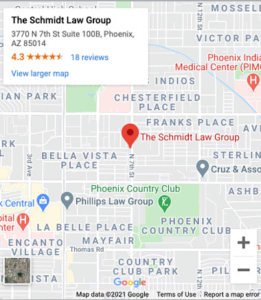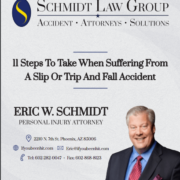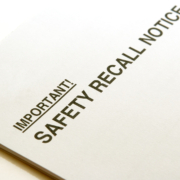No matter the cause, the death of a loved one is shattering. When the death is not due to natural causes, it is even more devastating to the victim’s friends and family. Some of these “unnatural” deaths are truly accidents, caused by forces beyond anyone’s control. Others are caused by people’s negligence or by brutal violence. In those cases, the survivors may be entitled to financial compensation for their loss of a loved one.
Although most states have similar definitions of wrongful death, they do vary a bit. In Arizona, the statute is quite clear. A wrongful death is “a death that is caused ‘by wrongful act, neglect or default.'” A loved one may bring a wrongful death action if the victim could have filed a personal injury case based on the circumstances of the event. In short, if the victim had survived, they would have had grounds to take legal action themselves.
Wrongful Death Basics
The criminal justice system may bring charges against those responsible for a wrongful death, but that criminal action is entirely separate from a personal wrongful death lawsuit. In fact, the surviving loved ones may choose to file a lawsuit after a criminal trial no matter what verdict the jury brought in. In some instances, prosecutors will take no criminal action, but the survivors will launch a successful wrongful death action.
Litigants have a better chance of success with these legal suits because the standard of proofis lower. In a criminal court, the jury must find the defendant guilty “beyond a reasonable doubt.” In a wrongful death action, the jury needs only to find the defendant guilty by “a preponderance of the evidence,” a significantly lower legal hurdle. Experts often phrase it as the “more likely than not” standard. Perhaps the most famous example of this difference is the O.J. Simpson case. He was found innocent in the criminal courts but guilty in the civil courts. The jury felt it was more likely than not that he killed his ex-wife and her friend. He walked free but still owes millions of dollars in compensation to a victim’s family.
Arizona Litigants
Someone may have a close relationship with the deceased but not be able to participate in a wrongful death suit. In fact, Arizona takes a rather strict stance on whom can file a wrongful death claim. They need to have clear legal status to do so. Those allowed to file such a claim include the following:
- Surviving spouse
- A surviving child
- Surviving parent or guardian
- The personal representative of a deceased spouse, child, parent, guardian or deceased person’s estate.
Other interested partners do not have recourse in the courts, even if they suffer financially from the death. Unlike some states, Arizona does not allow unmarried life partnersto file a wrongful death suit. Some areas allow those who were financially supported by the victim to take legal action even if they are not legally related.
In Arizona, the litigant must file a wrongful death suit within two years of the victim’s death or lose their chance to find satisfaction in the courts.
Wrongful Death Examples
People may pursue wrongful death actions in a number of situations, but the most frequent cases involve murder/manslaughter, medical malpractice and moving vehicle accidents. Families may also sue manufacturers if they believe faulty design or construction was to blame for a fatality. For instance, the Ford Pintowas the subject of a number of wrongful death suits due to its rear-mounted gas tank. During an impact, the gas tank was likely to explode, sometimes causing multiple fatalities. Asbestosmanufacturers have settled or gone to trial for many wrongful death claims.
Proving Wrongful Death
Proving a wrongful death case requires a skilled personal injury lawyer with experience in meeting the standard of proof in these matters. To win these cases, the attorney must first prove the defendant “owed a duty of due care.” A physician certainly owes their patients this duty as do bus drivers, police officers and employers.
Next, the attorney must establish that the defendant breached this duty, which simply means that they did not take due care. If the doctor left a sponge inside a patient during an operation, they certainly breached due care.
The attorney must also prove that the breach of duty caused the death of the victim. The victim of a severe gunshot wound might be in a crash on the way to the hospital. Before suing the driver for wrongful death, the attorney would have to prove the crash killed the victim and not the gunshot wound.
Finally, the attorney needs to prove damages are warranted. If the victim was supporting their family, damages are easy to prove.
Damage Awards
Damage awards are based on several factors and can be economic and non-economic. Economic damages include loss of the deceased’s income, funeral expenses, medical costs and loss of possible inheritance. The non-economic damages include pain and suffering and punitive awards.
Wrongful death awards vary greatly across the United States and do depend somewhat on the victim’s financial state when they were killed. Many of these damage awards are for millions of dollars, however. Often, the defendant chooses to settle rather than risk the jury’s verdict.
The Schmidt Law Group offers Arizona citizens expert legal advice and representation when it comes to wrongful death cases. Eric Schmidt at The Schmidt Law Group understands the devastation of losing a loved one under these conditions. He recognizes that loss of income is only a small part of the family’s suffering.
While money cannot make up for the loss of a family member, it can ensure that spouses, parents and children are properly cared for and do not have to live with restricted finances as well as their grief. Interested parties should call 602-282-0047 or fill out a free case evaluationas soon as possible.










